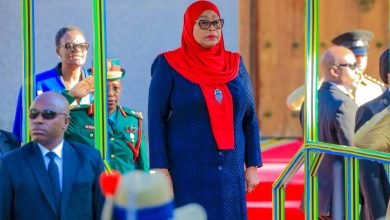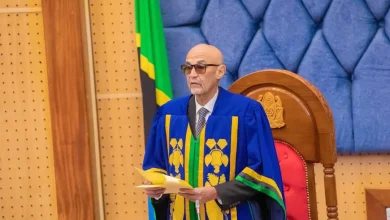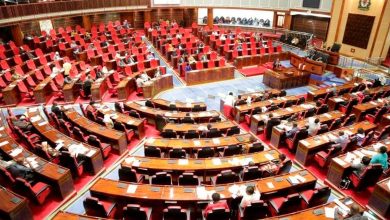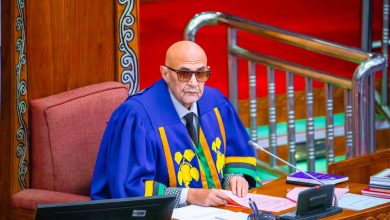Youth urged to shun violence, champion peaceful politics
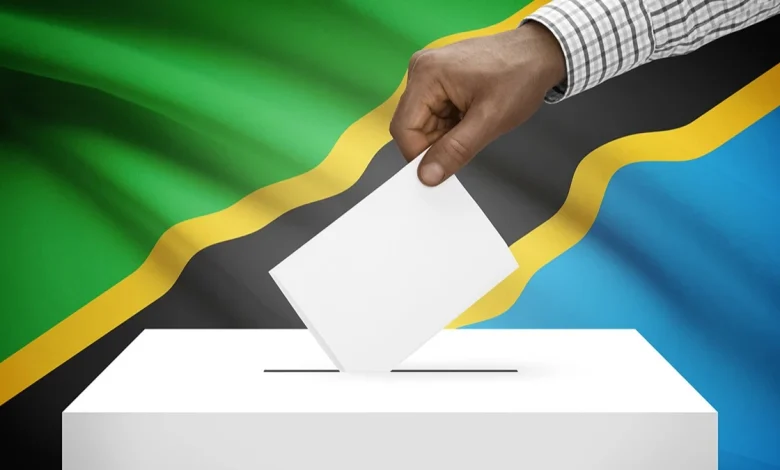
DAR ES SALAAM: POLITICAL analysts, activists and leaders have urged Tanzanian youth to become champions of peace and constructive political engagement, warning that violence and divisive rhetoric threaten the country’s democratic progress and economic development.
They insist that young people should prioritise reasoned, policy-driven debates over confrontation, noting that their energy and creativity are vital to shaping a peaceful and prosperous future for the nation.
According to them, it is crucial to educate and empower young people for Tanzania to advance in democratic consolidation and socio-economic growth, arguing that youth should be guided by ideas rather than short-term incentives or emotional appeals.
The national coordinator for the Tanzania Human Rights Defenders Coalition (THRDC), Mr Onesmo Olengurumwa, said that today’s youth have been raised in a multi-party system and, as a result, understand the meaning of democracy and ideological diversity.
In his view, having youth with differing political ideologies is not a problem but a positive sign of a mature democratic nation.
“It is healthy for a country to have youth divided across different parties, such as CCM, CHADEMA, ACT-Wazalendo and others, as long as they compete through reasoned debate, not insults or violence,” said Mr Olengurumwa.
He added that political parties which nurture their youth properly instill values, legal understanding and tolerance for differing opinions.
He described these structures as the pillars of peace, which must be deliberately protected.
Mr Olengurumwa warned that in recent years, there has been a rise in youth directing their energy towards conflict rather than constructive debate.
“There was a time when we were making good progress. Young people would compete in debates, challenging each other respectfully. But now, we are seeing more confrontations than discussions. This is dangerous for the nation’s future. We urge them to remain on the right track since there can be no development without peace,” he said.
He stressed that youth should participate fully in politics, but through dialogue, not violence.
“We need to create spaces where youth can engage politically in peace and freedom. By doing so, we will be nurturing tomorrow’s leaders, just as the youth of Mwalimu Nyerere’s era were nurtured,” he added.
He called on all young people nationwide to participate in the General Election on 29 October.
He said: “Young people should participate fully in elections — peacefully, through reasoned debate and with respect for the law. Those with grievances should continue to voice them politely, not through violence. Youth have immense potential to transform the nation, but their power must be used to build, not destroy.”
ALSO READ: Beyond ballot: Peaceful politics amplified
Vijana Connect Executive Secretary, Soba Sanganya, said Tanzanian youth make up over 70 per cent of the population, yet many lack a deep understanding of political ideologies, which undermines their capacity to contribute to national development.
“Youth are the backbone of the nation. Yet many do not fully grasp political ideologies. Instead of participating in politics that foster development, some are drawn into unproductive rivalries or populist agendas,” he said.
Reflecting on Tanzania’s past, Sanganya noted that institutions like the National Service (JKT) instilled patriotism, civic responsibility and ideological awareness.
“Those programmes taught us about our nation’s liberation history and the meaning of socialism and self-reliance. Youth must understand their role in this nation, which is to participate in progressive activities, not destructive actions.”
He added that political differences are natural in any democratic country and, when managed constructively, enrich national discourse.
“Ideology is meant to guide leadership and policy, not to divide citizens. Debates should be based on ideas, not insults,” he said.
The lecturer and political analyst at the University of Dodoma, Dr Paul Loisulie, said many youths perceive politics as “dirty,” filled with lies, corruption and conflict, discouraging meaningful participation.
Social frustration and lack of opportunities can lead young people to express grievances unproductively or violently.
“A youth without employment or agency may resort to force or harsh words. Party youth wings should serve as schools of citizenship, not platforms for stirring conflict. Political mentorship and education must be revitalised,” he said.
Director of the Tanzania Youth Coalition, Lenin Kazoba, urged youth to engage in economic activities and avoid destructive politics.
“When a young person feels excluded or lacks income, they become easy to exploit. Empowering them economically allows issuebased engagement rather than money-driven politics,” he said.
He stressed the need for permanent structures for youth inclusion in governance, noting that a politically aware youth population safeguards national peace.
Chairman of the Political Parties Council, Tadea Juma Ali Khatib, encouraged youth to aim for leadership positions and embrace constructive debate.
“Opposition is not hostility. A strong opposition keeps the government in check and ensures that citizens’ needs are addressed,” he said.
NCCR-Mageuzi ViceChairman (Mainland), Joseph Selasini, called on political parties to reintroduce political education, teaching youth political tolerance, party policies and ideological frameworks.
“Youth should evaluate parties based on policies and ideology, not loyalty to leaders. They should engage in income-generating activities to avoid being easily swayed and focus on substantive issues that can change society,” he said.


